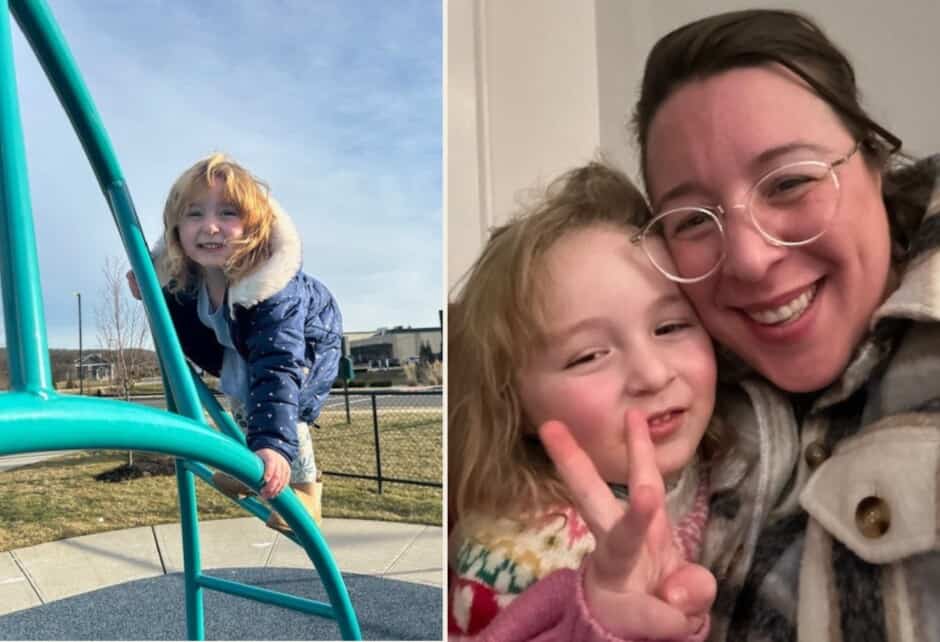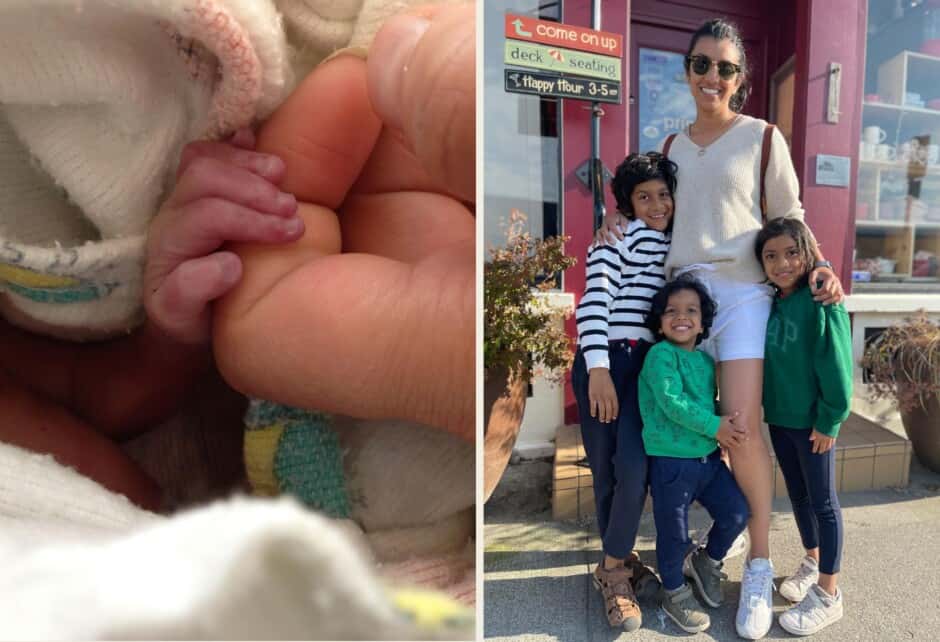
Mom Talk: Raising A Short Child To Be Confident
Written by
Photography by
PHOTOGRAPHED BY MODERN NEST PHOTOGRAPHY
As mothers, our most basic instinct is to shield our kids from harm. But as Lori Orlinsky sagely points out in today’s Mom Talk, that’s rarely the best strategy. When her own three-year-old daughter came home in tears after learning she was the shortest in her class, Lori knew resilience would be her best defense. But how to instill it proved to be the real challenge. Through conversations with her daughter, as well as a few realizations about her own behaviors, Lori, a Chicago-based writer and marketing director, was inspired to write the children’s book Being Small (Isn’t So Bad After All), which recently hit the shelves and has already scooped up a couple of awards. She shares her experience below, which we’re sure almost every mom, short or tall, can relate to!
When my daughter Hayley was three, she came home and declared that day would be her last attending the preschool she loved so much. When I asked her why, tears began streaming down her face. She explained to me that the teachers hung up a growth chart in the classroom and placed a piece of tape next to the measurements to show the height of each child. While her friends landed at the top and middle of the chart, her name was at the very bottom, with no other names in sight.
“I’m the worst because I’m at the bottom,” she told me. “Everyone is taller and better than me.”
Being 5’1″ on a very good day (with heels and volumized hair), I related to her predicament. Growing up, I was always the shortest kid in class, but it never seemed to bother me the way it did her. Sure, I knew at an early age that I’d never be on the basketball team, but I relished in the little privileges I was afforded, liked being front and center in a class photo.
“I don’t like being called a munchkin,” Hayley said.
So rather than telling my strong-willed daughter that she should ignore these comments, I armed her with the ways being short could work to her advantage. For example, she is the last one to get wet when it rains, and she can squeeze into the best hide-and-go-seek spots. Still, every day she’d come home and say, “Today my friends called me peanut, and it makes me sad.”
According to the U.S. Department of Justice, more than 160,000 kids stay home from school each day to avoid being bullied. Research indicates that bullying behavior can start as early as age three, with girls facing a larger chance of teasing.
The American Academy of Experts in Traumatic Stress believe that bullying has a real and profound psychological impact into adulthood, causing the saying “Sticks and stones may break my bones, but words will never hurt me” to ring untrue. For the most part, physical damage from a fight heals quickly, but words can cause lasting damage to a child’s self-concept and identity.
I didn’t want Hayley to be another statistic. While I knew the comments made about her height were innocent and playful, and even endearing at times, I worried that being labeled as short would cause her to lack confidence at a crucial time in her emotional and social development.
What’s more, when I scoured through books, movies, and television shows to point to a short character who Hayley could relate to that was a heroine, not only could I not find one, but I found tons of characters who had special abilities precisely because they were tall. Take Elastigirl from The Incredibles for example. She can stretch her body taller to ward off enemies and save the day. And then there’s Wonder Woman, who stands at six feet tall. Young girls look up to her—literally.
As a society, we are trained to perceive that privilege, power, and height go hand-in-hand. There are hundreds of studies that prove that taller employees make higher salaries than their shorter counterparts, and when it comes to the most important job of all, the United States tends to favor tall men to lead our country. Of our 45 presidents, only six have been of below-average height (the last one was Jimmy Carter, elected 40 years ago).
Thinking further about Hayley’s feelings, I realized she wasn’t alone. While she felt she didn’t fit in because she was short, I wondered about the children who were different in other ways from what society deems “normal.” We are raising the next generation, and in today’s day and age, it has never been more important to instill qualities of self-confidence and self-worth in our children, especially young girls.
At the end of the day, I could have talked to Hayley about the advantages that came with being smaller until I was blue in the face, but what she really needed was a lesson on acceptance.
“Worry about being the best Hayley,” I frequently told her. While I certainly didn’t want to give her false confidence, my philosophy was simple: teach her to stop comparing herself to other children—physically, socially, and academically, and focus on herself.
I’ll be honest—changing her mindset was no easy feat, but over time, it got easier because I also modeled that behavior. Hayley takes cues from me. She watches me get ready every morning, and I know there have been times I’ve told her I needed to wear my high heels because I had an interview or an important meeting to attend. While I have never believed that height equates to self-confidence, here I was, basically telling my daughter to stock a closet full of pumps because that is how I was conditioned to think. Now, at 35 years old, I am retraining my brain to put the notion of short and tall on a level playing field.
We never had the growth hormone conversation with our pediatrician, but Hayley (as well as my younger daughter, Ellie) would most likely qualify for the FDA-approved synthetic human growth hormone shots. While this course of treatment may be the right route for some families, it wasn’t consideration for us because in my mind, if I could teach Hayley to embrace her differences at an early age, she would never look at her height as a disadvantage.
Do you have a young daughter or son who is what society deems too short? Talk to them about how to accept themselves, point out their advantages and celebrate their differences. I bet the kid in your life didn’t know that shorter people can achieve a greater “rotational acceleration,” among other things, meaning they excel in sports like gymnastics, skating, and diving. While Hayley measures about three inches below the growth curve for a child her age, my hope is that she will not be short on confidence, and that she will stand taller with the knowledge that she is valuable and deserving of life’s best offerings and opportunities, whatever the size.
Are you a mother with something to say? Send us an email to be considered for our “Mom Talk” column.
Write a Comment
Share this story




Thank you for sharing this article. I stand six feet tall and despite my height and some of the advantages it afforded me (college scholarship), I often (read almost always) felt insecure growing up. Not until my late twenties did I stand tall (and then I did it in heels). Now, my oldest son has a gene mutation that weakens his muscles over time (dmd) and because of this he is the shortest in his class by far and will need a wheelchair in the not too distant future. People are askbhis age all the time … And are always so surprised that he is nearly 8 and the same size as his 5 year old brother. He never seems to mind but I find myself wanting to explain, and I don’t know what to say so that he continues being his very confident self.